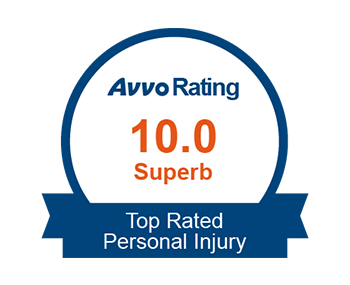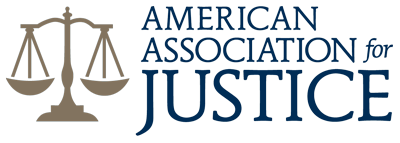When you are injured due to someone else’s negligence, it can be overwhelming to understand the steps required to seek compensation. In New York, the process of filing a personal injury claim is a structured journey that requires attention to detail, knowledge of the legal system, and persistence. A personal injury claim can help victims recover compensation for medical expenses, lost wages, pain and suffering, and other damages. Understanding the process from the very beginning to the conclusion can help ensure that you are adequately prepared for the legal challenges ahead.
Seeking Medical Attention and Preserving Evidence
The first step after being injured in an accident is seeking immediate medical attention. This is not only crucial for your health but also for establishing a connection between the accident and the injuries you have sustained. Medical documentation will serve as an essential part of your personal injury claim. It is imperative to keep track of all medical records, bills, and treatments related to the injury. This information will be invaluable when it comes time to calculate the extent of the damages you are entitled to receive.
In addition to medical documentation, preserving evidence from the accident is a critical step. This can include photographs of the accident scene, your injuries, and any property damage. If there were witnesses to the accident, it is important to gather their contact information, as their testimony could prove to be a vital piece of your claim. In some cases, police reports or incident reports can also serve as strong evidence.
Consulting with a Personal Injury Attorney
While it is possible to handle a personal injury claim on your own, the complexities of New York’s legal system often necessitate the guidance of a seasoned attorney. A personal injury attorney can help you navigate the legal process, ensuring that all paperwork is filed correctly, deadlines are met, and that you are fully aware of your rights throughout the case. Personal injury cases can become complicated when dealing with insurance companies, multiple parties, or contested liability. An attorney can help negotiate settlements and, if necessary, represent you in court.
During the initial consultation with your attorney, you will be asked to provide a detailed account of the accident, along with any evidence you have gathered. Your attorney will evaluate the strength of your case and discuss potential outcomes with you. They will also explain the legal process in more detail, including what to expect as your case progresses.
Filing the Complaint and Beginning the Legal Process
Once your attorney has gathered sufficient evidence to support your claim, the next step is to file a formal complaint with the court. This complaint is a legal document that outlines the details of your claim, including how the defendant’s negligence caused your injuries and the damages you are seeking. Filing a complaint is the first official step in initiating a lawsuit and starting the legal process.
After the complaint is filed, the defendant will be served with legal papers notifying them of the lawsuit. The defendant will then have the opportunity to respond to the complaint, typically within a specified time frame. The defendant may either accept responsibility and attempt to negotiate a settlement or contest the claim, which will lead to further legal proceedings.
The team is very personable, patient and empathetic with their clients. They are upfront with you and will explain the entire process with you, they never lead you to believe otherwise, they tell you like it is and will not sell you a million dollar dream. Trust in Andrews, Bernstein & Maranto, PLLC, they work for you and he looks out for your best interest.” - Jane D.
Discovery Phase and Gathering Additional Evidence
Following the filing of the complaint and the defendant’s response, the case enters a phase known as discovery. During discovery, both parties have the opportunity to gather additional evidence and request information from each other. This can include depositions, where witnesses or parties involved in the case are interviewed under oath, as well as requests for documents, medical records, and other relevant materials.
The discovery phase is often one of the longest parts of the personal injury claim process. It allows both sides to fully investigate the details of the case and build their respective arguments. In some cases, new evidence or testimony may emerge during discovery, which could affect the course of the claim. Your attorney will be responsible for managing this phase, ensuring that all necessary information is collected to strengthen your case.
Negotiating a Settlement
Throughout the legal process, there may be opportunities to negotiate a settlement with the defendant or their insurance company. Settlements are often preferred because they allow both parties to avoid the costs and uncertainties of a trial. During settlement negotiations, your attorney will work to secure compensation that adequately reflects the damages you have suffered, including medical expenses, lost wages, and emotional distress.
Negotiating a settlement can be a delicate process, as the defendant or their insurance company may attempt to minimize your claim or offer a lower amount than what you deserve. Your attorney will advise you on whether to accept a settlement offer or continue pursuing the case through litigation. It is important to remain patient during this stage, as rushing to accept an offer may result in a lower payout than what you are entitled to.
Should I Take The First Settlement Offer? Steps to File a Personal Injury ClaimRelated Videos
Proceeding to Trial
If a settlement cannot be reached, the case will proceed to trial. During the trial, both parties will present their arguments before a judge or jury. Your attorney will present evidence, call witnesses, and make legal arguments on your behalf. The defendant will also have the opportunity to present their defense.
The trial process can be lengthy and emotionally taxing, but it is often necessary to achieve justice in a personal injury case. The judge or jury will ultimately decide whether the defendant is liable for your injuries and, if so, how much compensation you are entitled to receive. While most personal injury cases are settled before reaching this stage, it is essential to be prepared for the possibility of a trial.
Understanding the Statute of Limitations in New York
In New York, personal injury claims are subject to a statute of limitations, which is the legal deadline by which a lawsuit must be filed. For most personal injury cases, the statute of limitations is three years from the date of the accident. If the claim is not filed within this time frame, you may lose the right to seek compensation for your injuries.
It is important to consult with an attorney as soon as possible after an accident to ensure that your claim is filed within the appropriate time frame. Delaying the filing of your claim can make it more difficult to gather evidence and could jeopardize the strength of your case.
Verdicts & Settlements
The Role of Insurance Companies in Personal Injury Claims
Insurance companies often play a significant role in personal injury claims. Whether you are dealing with your own insurance company or the defendant’s, it is important to be cautious when communicating with insurance adjusters. Insurance companies are businesses that aim to minimize payouts, and they may use tactics to devalue your claim or pressure you into accepting a lower settlement.
An attorney can handle communications with the insurance companies on your behalf, ensuring that your rights are protected and that you do not unintentionally harm your case. It is crucial to provide accurate and honest information to the insurance company, but you should avoid making any statements that could be misconstrued or used against you.
Receiving Compensation and Conclusion of the Case
If your claim is successful, whether through a settlement or a court judgment, you will receive compensation for your damages. This compensation may include coverage for medical expenses, lost wages, pain and suffering, and other related costs. Your attorney will help you navigate the process of receiving your compensation and ensuring that all legal and financial aspects of the case are resolved.
Once the case is concluded, it is important to follow through on any medical treatment or rehabilitation that you may still require. Recovering from a personal injury can be a long process, and ensuring that you receive the necessary care is crucial for your overall well-being.
If you have been injured due to someone else’s negligence, navigating the legal process of filing a personal injury claim in New York can be daunting. Andrews, Bernstein & Maranto, PLLC is here to guide you through every step of the way, ensuring that you receive the compensation you deserve. With a dedicated team of attorneys who are committed to fighting for your rights, we are ready to help you get the justice you deserve. Contact us today for a free consultation to discuss your case and begin the process of securing the compensation you are entitled to.












